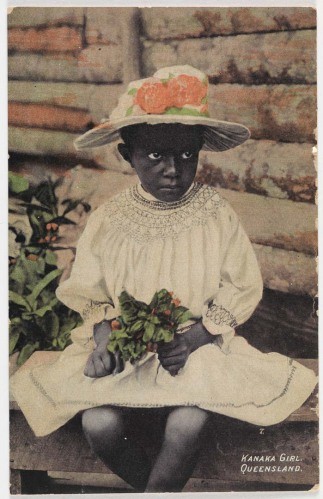
As part of celebrations commemorating 150 years of Australian South Sea Islander contributions to Queensland, the Queensland Art Gallery will launch the exhibition 'Sugar'. Bringing together historical photographs with recorded stories, music and works by contemporary artists, 'Sugar' highlights the contributions made by South Sea Islanders and their descendants, Aboriginal and Torres Strait Islanders, of Australian-Chinese families, as well as European settler communities.
At the heart of the exhibition are stories and songs recorded by descendants of the South Sea Islanders recruited - or kidnapped - from across Melanesia between 1863 and 1904, and brought to work in cane fields across Queensland and northern New South Wales. This year marks 150 years since the first Islanders arrived in this state. 'Sugar' offers a glimpse of their experiences and of the early development of the sugar industry through historical documents from the Queensland Art Gallery and State Library of Queensland collections.
The use of indentured labour to fuel economic development was not isolated to nineteenth-century Queensland, as the spectacular work by Robin White, Leba Toki and Bale Jione attests. Drawing on its legacy in Fiji's sugar industry, this barkcloth installation brings together indigenous Fijian and Indo-Fijian cultural references, presenting a unique vision of contemporary Fiji. Like this work, 'Sugar' seeks to acknowledge these diverse histories, to celebrate the ongoing contributions of these communities and to provide a compelling portrait not only of the sugar industry but also of Queensland.
For more information about 'Sugar' please go to the Queensland Art Gallery Gallery of Modern Art webpage for more information.
Ruth McDougall - Curator Pacific Art, Queensland Art Gallery Gallery of Modern Art
Comments
Your email address will not be published.
We welcome relevant, respectful comments.